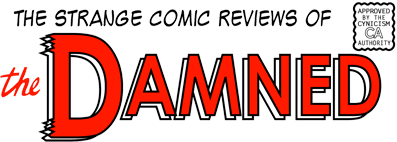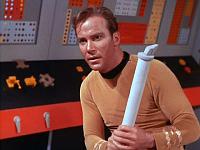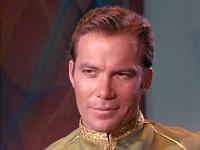

Travels With Larry Part V
Switchblade Honey
I came predisposed to dislike this book. Not because of any innate distaste for the genre or the creators, merely on the basis of Warren Ellis’ own words. If anyone cares, I think his own introduction to this book is the worst part. It’s probably prejudiced more than a few potential buyers against the volume. I can see them skimming the intro in the store, and saying to themselves “dude, not even the writer likes it . . .”
Most introductions feature something to the effect of “I love this book,” “I think it’s a groundbreaking piece of visionary craftsmanship,” at the very least “I don’t hate it.” Ellis writes, in introduction to prospective readers, that the volume is “. . . a joke. An extended gag at the expense of the colourless

I’ve always been lukewarm on Ellis. For everything of his that I like (“Doom 2099” [don’t laugh until you’ve read it], “Planetary”), I’ve read too many books that just weren’t very good (yeah, I’m looking at you, “Transmetropolitan”). In particular I’ve been feeling particularly burned by him this past year on account of the “Orbiter” hardcover. It’s an absolutely beautiful book, full of career-peak artwork by Ms. Colleen Doran, but the story attached to said artwork was horrible.
Ironically, “Orbiter” failed for the exact reasons that Warren Ellis claims to dislike Star Trek. And believe it or not, I think that regardless of absolutely everything Ellis says in his intro, “Switchblade Honey” works for the very same reasons that make Star Trek cool.

Or rather, made, as in past tense. It’s a sad fact of life for those of us who grew up on Star Trek, that the franchise just, well, sucks. There’s been so much water under the bridge, it might seem borderline apostasy to say this in public, but it’s the truth: I remember when Trek was cool. Hell, I remember when Captain Kirk was still the coolest hombre in the galaxy and it wasn’t an act tantamount to social suicide to admit that, yes, I Grokked Spock.
You see, way back in the day, for those too young to remember, Trek was just the coolest thing going. Captain Kirk and his homies flew around the galaxy and kicked ass, took names, and got laid a lot . . . but honestly, that was just window-dressing. There was something here that appealed to the nation’s pioneer spirit. There was some serious political and social commentary, and not just wussy crap either – they weren’t afraid to tackle racism, sexism, the Cold War – it was all fair game. Everyone knows that Gene Roddenberry famously described Trek as “Wagon Train in space” – but it was a westward expansion without manifest destiny, with white hats and black hats but most importantly with a Prime Directive and an underlying sense of moral decency. I can think of many, many worse messages to send in an action-adventure series aimed at young adults. In fact, many of those worse messages are being broadcast through our airwaves on a daily basis.
The problems started, not with the movies, but with Star Trek: The Next Generation. Yes, it was cool – at least in the beginning – but it was hard to avoid the fact that this was the science-fiction equivalent of perestroika. Sure, if you actually lived in the Federation, it was probably a lot better without hordes of rampaging Klingons, but from the standpoint of the viewer, just how fun was it to watch the adventures of a Starship Enterprise that funcitoned as a medium-sized city, with children underfoot and day-care centers? How many episodes featured the Enterprise shuffling diplomats to peace conferences? What about all those interminably asinine holodeck episodes?

I can’t impugn their motivations in wanting to present an optimistic future. But I also cannot forgive them for turning one of the coolest action series in history into a eunuch. There’s a reason why people liked the episodes that featured implacable nemeses like Q or the Borg a lot better than any in the seemingly endless series of Klingon political maneuvers or – gasp! – Romulan intrigues.
Star Trek: Deep Space Nine made up for a lot of TNG’s sins. The fact that DS9 seemed hatched from a far more cynical and realpolitik viewpoint than any of the previous Treks no doubt helped in the matter. But still, the damage was done - Star Trek had essentially been PC’ed to death by Roddenberry’s own insistence on non-violent conflict throughout the shows early days and by the succession of mealy-mouthed corporate bean-counters – led by Mr. Rick Berman – who tore the last vestiges of cool from the fading brand. Voyager was a transparent attempt to win back the dynamic thrust of the original series, but the wan characters and woefully uneven writing doomed it. And in all honesty I still haven’t seen an episode of Enterprise. Ten years ago I loved Trek, but now I turn the channel when it comes on.
When Warren Ellis says he hates Trek, I deeply suspect that he hates everything Trek has become, everything it signifies in terms of genre fiction and the wider cultural context. But “Switchblade Honey” tells me that Ellis is perhaps the best possible choice in all the entertainment industry to try and revitalize the actual Trek brand. Whether he knows it or not, he seems to understand instinctively just why Trek was cool. Someone at Paramount needs to give him a huge pile of money to make Trek new again.

Is it a great piece of graphic literature? Hell no. It’s basically the OGN equivalent of an old-school pulp novel: fast, cheap and out of control. The art, by Mr. Brandon McKinney, is tolerable, the kind of fast crap you expect to see in something like 2000 AD. It’s the kind of crap that makes a virtue of its’ craptitude. You aren’t really tempted to linger over any of the pages to stare at the beautifully rendered details – fuck that shit. You don’t want to stick around on any page too long, anyway, or the plot holes will eat you alive. What you want to do is burn through this sucker as fast as you can, because it seems to have no real purpose than to climb into your brain and self-destruct. It’s a good thing.
The set-up for this story is remarkably simple. Basically, instead of having achieved a Trek-like utopia, mankind has reached the stars with all our evil intact. We’ve made first contact with an alien race called the Chasta, who we kind of, um, butchered and ate. But they were really a super-intelligent hive-mind organism with the means and the motive to eradicate entire species from the universe. They’ve just about succeeded with the human race, too. Enter our heroes.

The crew of the Switchblade Honey is pulled from the dregs of an intergalactic prison. You know them, they’re the kind of malcontents who are usually drafted for suicide missions of these sorts. They are sent into the galactic wilderness to begin a campaign of guerilla warfare.
Interestingly, despite proclivities for violence and slight anti-social tendencies, the one unifying factor for all the crewmen is their rigid decency. Many of them were imprisoned for failing to comply with morally despicable orders – abandoning comrades, firing on civilians and the like. The future space military in “Honey” seems just as situationally amoral as our own. (Before you interpret that in any way shape or form as a blanket condemnation of our own fighting forces, remember that my wife is a ten-year veteran of the US Air Force. But I’m also a student of history and I know that in every war there are atrocities and America has committed more than our fair share –those are just the facts of life.) This seems less a condemnation of Trek than military thinking in general, and in fact, it does a good job of highlighting just why Trek was so wonderfully, naively optimistic.

At the end of the day, the crew of the Switchblade Honey may seem rough & tumble because they smoke and drink, but it’s less a condemnation of Trek’s rampant PC than an examination of where exactly Trek went wrong. There’s excitement, urgency and a more than a little sex appeal (I mean, really, low cut skintight space blouses?) You’ve got fiendish alien foes and improbably high-tech wizardry. You’ve also got your fair share of plot holes and deus ex machina devices, but, truthfully, many less than you’d get from your average space opera movie. At the end of the day it’s just a damn satisfying read. I want to find out what happens next, and that’s about the best compliment I can possibly imagine in this day and age. Not bad for a “cheap joke.”
Considering the circumstances, I think this was a much more successful project than “Orbiter.” It’s true that under the gruff exterior of every cynic you’ll find the pink and bleeding heart of an idealist, and “Orbiter” was little more than a mash-note to manned space exploration. I agreed with the sentiment but I strongly disapproved of the treacle. “Switchblade Honey” manages to make that same point with considerably less narrative ballast. I paid $25 for “Orbiter” and “Switchblade Honey” cost $9.95 – I don’t have to tell you which is the better bargain.

The same idealism that Ellis holds close to his heart for space exploration is the very same idealism that fueled Trek way back when. Back before the galaxy was colonized, when it was still a rough and tumble place full of Klingons and Gorns and impossible space gangsters. Ryder, Ellis’ obligatory tough-as-nails maverick, even makes a speech towards the end of the book that could have easily come out of James T. Kirk’s Logbook:
”I joined the Navy because I wanted to explore. I wanted to Captain a starship and say, we don’t know what’s over there. Let’s go that way.” (Emphasis mine)
Ultimately, “Switchblade Honey” is a sight for these sore eyes. I’m sorry – you can go on all day about Farscape and Babylon 5 and freakin’ Stargate SG-1, but when it comes to space opera I still have a soft spot for the classics. Give me Dr. Who, give me Planet of the Apes and Silent Running and The Outer Limits (the old, good, series).
I’d buy a new volume of “Switchblade Honey” in a heartbeat.

"DON'T FUCK WITH ME"





No comments :
Post a Comment